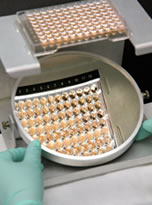Read and report vaccine reactions, harassment and failures.

Meningococcal Disease
- Meningococcal disease is a serious and potentially life-threatening illness caused by the bacteria Neisseria meningitides. Most frequently, the illness can result in inflammation of the meninges of the brain (meningitis) and a serious bloodstream infection (septicemia/meningococcemia). Invasive meningococcal disease can also present as arthritis and pneumonia.
- Meningococcal disease is not easily spread and requires one to be susceptible to the infection and to have regular close contact with a person who is colonizing the bacteria.
- Meningococcal rates are low in the U.S. and have steadily declined since the 1990’s. In 2020, there were approximately 235 cases in the U.S. Of these cases 26 percent were unknown and ungroupable serotypes with 20 percent occurring in children too young to be vaccinated. For 2020, 23 death were reported, or less than one percent of cases. Individuals most at risk for contracting meningococcal disease are infants, adolescents, young adults and seniors.
- Between 10-20 percent of individuals are asymptomatic carriers and colonize the bacteria that causes meningococcal disease in the back of their throats.
- Invasive meningococcal disease may cause permanent injury including brain damage, hearing loss, loss of a limb or death. Persons noted to be at highest risk of developing complication from meningococcal disease are those with certain genetic factors, HIV, smokers as well as those who have a family member with the disease.
Meningococcal Vaccine:
- There are five FDA approved meningococcal vaccines available for use in the U.S. that target a total of 5 of the 13 serotypes of meningococcal disease. Three vaccines, Menectra (Sanofi Pasteur), Menveo (Novartis/GlaxoSmithKline), and MenQuadfi (Sanofi Pasteur) are conjugate vaccines that target serogroups A, C, Y and W-135 meningococcal bacteria and two vaccines, BEXSERO (Novartis/GlaxoSmithKline) and TRUMENBA (Wyeth/Pfizer) are recombinant vaccines that target serogroup B meningococcal bacteria. Menactra was discontinued by the manufacturer in 2022.
- The CDC recommends all children receive their first dose of meningococcal serogroup A, C, Y and W-135 conjugate vaccine at age 11-12 and an additional booster dose at age 16. The booster dose recommendation was made in 2010 after studies noted that only 50 percent of adolescents vaccinated at age 11-12 had sufficient vaccine-acquired antibodies to protect them against meningococcal disease five years post-vaccination.
- The serogroup B recombinant vaccines are available for use and should be considered by adolescents between 16 and 23 years of age, however, they are not routinely recommended as part of the vaccination schedule. In 2015, the CDC’s Advisory Committee on Immunization Practices (ACIP) declined to routinely recommend vaccination with the serogroup B vaccines. The committee came to this conclusion after evaluating multiple factors including the high number of people that would require vaccination in order to prevent a single case of meningococcal disease, the low rates of the disease, the vaccine’s cost, lack of efficacy and safety data as well as the potential risk that serious adverse reactions would exceed the number of cases potentially prevented from the vaccine.
- In 2020 for meningococcal cases, 85.7 percent of college students (18-24 years) and 69.2 percent of person not attending college (18-24 years) had received at least one dose of MenACWY vaccine. For this same age group and college status, 14.3 percent of college students and 18.2 percent of persons not attenting college had received at least one dose of MenB vaccine.
- As of June 30, 2023, there have been more than 44,753 reports of meningococcal vaccine reactions, hospitalizations, injuries and deaths following meningococcal vaccinations made to the federal Vaccine Adverse Events Reporting System (VAERS), including 259 related deaths, 4,778 hospitalizations, and 599 related disabilities.
- As of August 1, 2023, there had been 130 claims filed in the federal Vaccine Injury Compensation Program (VICP) for injuries and deaths following meningococcal vaccination, including 3 deaths and 127 serious injuries.
Food & Drug Administration (FDA)
- Menactra (Meningococcal (Groups A, C, Y and W-135) Polysaccharide Diphtheria Toxoid Conjugate Vaccine) Product Insert & Licensing Information
- Menveo (Meningococcal (Groups A, C, Y, and W-135) Oligosaccharide Diphtheria CRM197 Conjugate Vaccine) Product Insert & Licensing Information
- MenQuadfi (Meningococcal (Groups A, C, Y, W) Conjugate Vaccine) Product Insert & Licensing Information
- BEXSERO (Meningococcal Group B Vaccine) Product Insert & Licensing Information
- TRUMENBA (Meningococcal Group B Vaccine) Product Insert & Licensing Information
Centers for Disease Control (CDC)
- CDC on Meningococcal Disease
- CDC on Meningococcal Vaccine
- Meningococcal ACWY Vaccine Information Statement (VIS)
- Serogroup B Meningococcal (MenB) Vaccine Information Statement (VIS)
Vaccine Reaction Symptoms & Ingredients
Our Ask 8, If You Vaccinate webpage contains vaccine reaction symptoms and more.
Search for Vaccine Reactions
NVIC hosts MedAlerts, a powerful VAERS database search engine. MedAlerts examines symptoms, reactions, vaccines, dates, places, and more.
Reporting a Vaccine Reaction
Since 1982, the NVIC has operated a Vaccine Reaction Registry, which has served as a watchdog on VAERS. Reporting vaccine reactions to VAERS is the law. If your doctor will not report a reaction, you have the right to report a suspected vaccine reaction to VAERS.
NVIC “Quick Facts” is not a substitute for becoming fully informed about Meningococcal disease, meningitis and the Meningococcal vaccine. NVIC recommends consumers read the more complete information following the "Quick Facts", as well as the vaccine manufacturer product information inserts, and speak with one or more trusted health care professionals before making a vaccination decision for yourself or your child.



